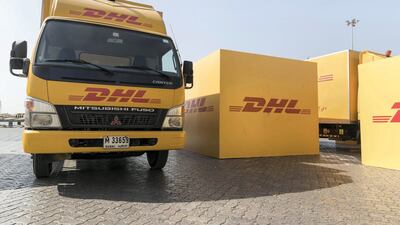Digital technology is transforming industries around the world, but most GCC companies in the vital transportation and logistics (T&L) industry are waiting and watching. This puts GCC firms at a disadvantage to global competitors. As a result, large international companies are adopting these technologies and increasing their share of the region’s T&L business.
The benefits of digital are substantial. Firms can slice costs by 10-30 per cent and reduce operational risks and breakdowns by 75 per cent. They can also create new revenue through innovative business models. To capture these gains, however, GCC companies must understand which technologies are the most appropriate and how these can help solve each firm’s unique challenges.
Some management teams are understandably hesitant. Most T&L executives rose through the ranks when digital technologies did not exist. The flood of new tools and applications entering the market can be confusing, and there is a temptation to chase the latest and greatest offering, or entertain propositions from any vendor knocking on their doors. Moreover, many technologies generating headlines are in the early stages of deployment and have a long way to go before they can generate real value for companies.
Broadly, there are three groups of digital technologies that are relevant for the GCC T&L industry: big data and analytics, on-demand mobility, and blockchain. These three are already in use and creating substantial gains for T&L companies in other markets. Notably, all three are reducing costs, leading to new business models, introducing better ways to serve customers, and creating new revenue streams.
The first, data analytics, lets companies capture data in greater volumes with higher levels of detail and accuracy, allowing them to sift through these data for insights. Companies can manage information in a way that makes their services smarter, faster, and less expensive.
For example, German freight company DHL Express uses big data and analytics along its entire value chain. The company has sensors on delivery trucks that collect traffic data and send them to a central analytics system, where they are analysed to reroute other drivers. The company also “crowd-sources” pick-ups and deliveries, allowing available drivers to scale up and handle increased volume on their routes. It even sells some of its market-based data to small- and medium-size businesses.
The second priority technology is on-demand mobility. This is the capability to get data securely and reliably into the hands of employees, managers, and executives through smart phones, tablets, or other mobile platforms. One regional start-up, Load-Me.com, has created a mobile marketplace connecting shippers, logistics professionals, and drivers, giving them real-time information about shipments that need transport, trucks, and other logistics services. By creating transparency and streamlining some of the burdensome processes required to book freight, Load-Me.com has simplified logistics, increased competition, and lowered freight costs.
________________
Read more:
Business leaders unprepared for digital transformation, expert says
Italian robot concierge latest deployment of AI
________________
The third technology is blockchain. This online ledger allows organisations to record transactions online in a secure way, encrypting them and distributing them across a wide network of computers. In the freight industry, blockchain connects carriers and shippers directly, without the need for distributors or middlemen. A Silicon Valley startup called Skuchain has created a blockchain-based application specifically for T&L. The application tracks shipments securely through each leg of their journey, putting smaller and less-experienced carriers such as those in the Middle East on an equal footing with larger, established players.
In the short term, each of these technologies can help GCC T&L players to lower costs and gain efficiency. Over the long term, companies can redesign their business models, improve the customer experience, and better engage with customers. Rather than simply offering the same service more efficiently, companies should use these digital tools to develop new services to customers. This change is as radical for T&L as the shift in media from videocassettes to streaming movies on a smartphone.
These gains require a comprehensive approach. All three technologies discussed here are extremely powerful, but they demand a clear strategy for implementation. Companies need to identify a specific business problem and determine how a specific technology will help them solve it. Enterprises also need to build the right supporting capabilities, in areas such as cyber-security and data mining. They will need also to reengineer key processes to capitalise on information, in areas such as cargo-tracking, pricing, and cross-docking.
Digital technology offers GCC T&L companies a rare opportunity to dramatically improve their offerings. Organisations that miss this opportunity risk getting left behind by global competitors. Those firms that adopt the right technologies, and the organisational elements needed to capitalise on them, can position themselves to win.
Ulrich Koegler is a partner and Jean Salamat is a principal with Strategy& Middle East, part of the PwC network

